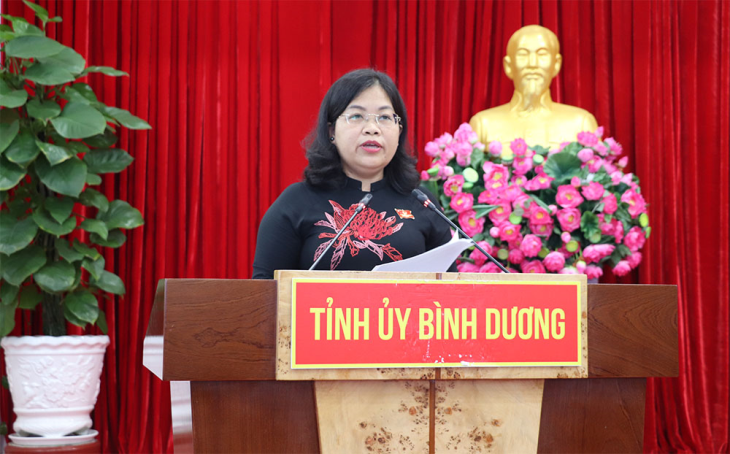According to the report, over the past time, attracting social investment in the province has achieved many positive results. Specifically, many social projects of different scales have received investment attention from enterprises, and the network of providing public services and promoting socio-economic development to meet the needs of people in the province has been increasingly expanded.
By 2023, the province had 336 non-public education and training institutions, accounting for over 50% of educational and training institutions in the province; 86 non-public vocational education and training (VET) institutions, accounting for over 77% of VET institutions in the province.
Currently, the number of hospital beds and the number of medical examinations and treatments at non-public medical facilities account for 40% of the total numbers of the province; 01 medical examination and inpatient treatment area on demand in the form of socialization with a total investment of 72 billion VND; 04 joint venture and association projects. These facilities have served more than 12,000 patients using medical services, with a total annual revenue of over 4 billion VND.

Ms. Nguyen Truong Nhat Phuong - Vice Chairwoman of the Provincial People's Council, reports on the situation and results of implementing policies to encourage socialization in the province.
Cultural, physical education and sports activities are diverse, attracting a large number of people to participate. Performing arts projects, types of cultural service businesses, sports projects, and large-scale historical and cultural projects are invested in by enterprises to meet social needs.
The province has 21 facilities operating in the environmental sector that are eligible for socialization policies: 07 facilities for waste and hazardous waste treatment; 04 facilities for centralized urban wastewater treatment; 02 cremation/electro-cremation facilities; and 08 facilities for clean water supply.
Besides, there are 02 forensic examination organizations, i.e., the Forensic Examination Center under the Department of Health and the Criminal Techniques Department under the Provincial Public Security, with 122 people performing forensic examination tasks.
In addition to the achievements, the implementation of policies to encourage socialization still has many limitations. For example, investment and cooperation activities of the private sector in socialization fields in the forms of joint ventures, associations, business cooperation, and public-private partnerships are still isolated and have not created any breakthrough in the whole system. The results of mobilizing resources from economic sectors are not high due to the current situation of the province's infrastructure being lacking and not synchronous, not creating connections with neighboring areas. The quality of preschool education and non-public general education is still limited, and the rate of facilities meeting educational quality accreditation standards and national standards is still low. Foreign investors and foreign-invested economic organizations have not been attracted to invest in the health sector due to complicated land procedures, time-consuming and not economically effective, etc.
According to the Supervisory Delegation, in addition to objective causes related to laws and legal regulations, there are also objective causes: Propaganda work on socialization is not rich in content and form, not widely deployed to organizations and individuals doing business in the area; awareness of the policy of implementing socialization is still inadequate, application is not flexible; investors rarely participate in investing in areas with large investment capital, high operating costs, slow capital recovery and those that take too much time for investment procedures, land, planning, construction, etc.